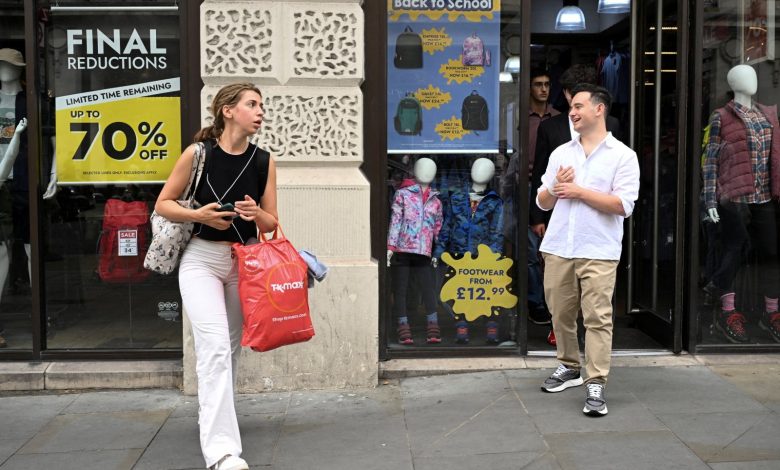UK inflation falls in September, spurs odds of another rate cut

Inflation in the U.K. has fallen to its lowest level in over three years, official data showed Wednesday, marking a further drop below officials’ target, which, as a result, has spurred market expectations that the Bank of England (BoE) will lower interest rates at its next policy meeting.
The Office for National Statistics (ONS) said consumer prices rose 1.7% in September, down from 2.2% the previous month, largely due to lower air fares and petrol prices. But price pressures were lower across the board, even in the services sector, which worried policymakers as it accounts for around 80% of the British economy.
The decline was bigger than the 1.9% analysts had anticipated and means that inflation is below the central bank’s target rate of 2% for the first time since 2021.
As a result, the bank’s rate-setting panel is expected to reduce its main interest rate further when it meets again in early November to 4.75% from 5%. It previously cut borrowing costs in August, the first reduction since the early days of the coronavirus pandemic in early 2020.
“A quarter-point rate cut in November is now effectively a done deal, and this report certainly makes the path to a consecutive cut in December much clearer,” said Luke Bartholomew, deputy chief economist at abrdn, formerly Aberdeen Asset Management.
Central banks around the world dramatically increased borrowing costs from near zero during the coronavirus pandemic when prices started to shoot up, first as a result of supply chain issues built up and then because of Russia’s full-scale invasion of Ukraine, which pushed up energy costs.
With higher interest rates helping to reduce inflation from multi-year highs by making it more expensive for businesses and consumers to borrow, they have started cutting interest rates.
For example, the U.S. Federal Reserve (Fed) slashed its main rate last month, while the European Central Bank (ECB), which sets monetary policy for the 20 countries that use the euro, is expected to cut again on Thursday.
The BoE is also widely expected to reduce borrowing costs again at its next meeting in November, especially as it will have details of the government’s budget on Oct. 30.
The new Labour government has said that it needs to plug a 22 billion pound ($29 billion) hole in the public finances and has indicated that it may have to raise taxes and lower spending, which would likely weigh on the near-term outlook for the British economy and put downward pressure on inflation.
The lower inflation rate in September is a boon for Treasury chief Rachel Reeves as she prepares to deliver her first budget since many annual government benefits are linked to September’s rate. The prospect of lower borrowing rates in the months ahead is also welcome as it will reduce the government’s debt-related interest payments and potentially give her more leeway.
However, it’s bad timing for many of the most vulnerable households in the U.K. since benefits are based on the inflation rate measured in September. If they had been linked to the October rate, when inflation is widely expected to rise as a result of an increase in domestic energy bills, they would have gotten more.
“This temporary fall is badly timed for millions of low-to-middle income families as it will result in a lower increase in their benefits next year,” said Lalitha Try, an economist at the Resolution Foundation.


